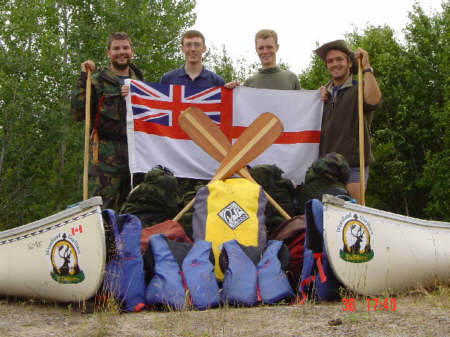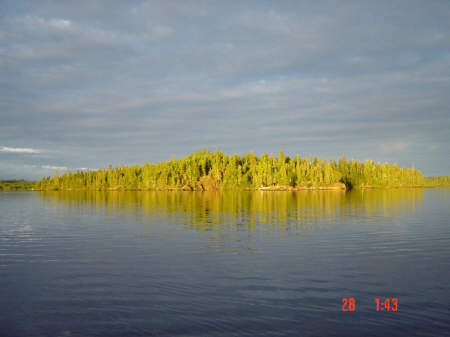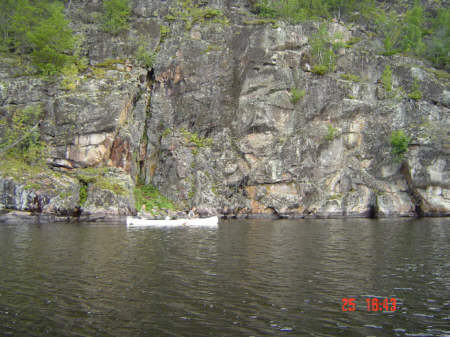Canoeing Expedition ‘Canadian Caribou Canoe’, Canada, July 2004
Birmingham University Royal Naval Unit
|
|
Canadian Caribou Canoe 2004 was a three summer weeks canoeing expedition in the wilderness of Woodland Caribou Provincial Park, North West Ontario. The team comprised Sub-Lieutenants Jon Wright, Dave Blatcher and Matt Main Royal Navy, and Midshipman James Johnson Royal Naval Reserve. S/Lt Wright RN had the onerous task of organising the expedition, whilst Mid. Johnson RNR, a Joint Service Canoe Coach, was recruited to lead the expedition when on the water. Woodland Caribou Provincial Park covers an area approximately 1,800 miles square, and the Canadian Government only allowed 1,000 people to enter the park this year. The Park is a vast network of remote lakes and rivers, interlinked by trails running through the dense woodland. The expedition involved approximately eight hours paddling a day, with the four of us sharing two canoes. The paddling was broken up by the numerous portages through the woodland, which, while carrying two canoes, and fourteen days worth of equipment and supplies, proved physically demanding. Each night we would strike camp at a different location, often on one of the many small exposed islands located on the lakes. The flora and fauna encountered on the expedition was incredible. The team saw numerous moose, otters, bald eagles, turtles, beavers, chipmunks, crayfish, and even a black bear! The less welcome wildlife included plagues of mosquitoes from which there was no escape. The team also encountered a number of sites of native rock art, and even managed to catch their own fish to supplement the huge amounts of food that filled several very heavy Bergen’s. For the Canadians, 2004 brought one of their worst summers on record. Instead of the glorious sunshine the team were expecting, they faced driving winds and incessant rain. A combination of the wind and the resultant waves meant that at times, the canoes would only go aft despite our determined efforts to push on. On several occasions, the risk of capsize or physical exertion meant that the team had to abandon a passage and seek shelter on land. Once the expedition was complete, the team spent some time in Red Lake and Winnipeg, and attended a wardroom reception aboard HMCS CHIPPAWA. The Canadians were all very friendly and welcoming, and the ships company of HMCS CHIPPAWA escorted the team on a memorable evening out in Winnipeg. |
|
|
|
|
|
The expedition was an excellent opportunity to forge links between the Royal Navy, the Royal Naval Reserve and the Canadian Navy. The team have developed their leadership, communication, and planning skills and have been fortunate to visit one of the most remote and attractive parts of the planet. Most importantly, the team have forged friendships with each other that will last a lifetime. The team are very grateful to the Royal Navy, the Canadian Navy, the Ulysses Trust, Sodexho and the Royal Navy and Royal Marines Sports Lottery for their support and assistance.
Mid. James Johnson RNR


